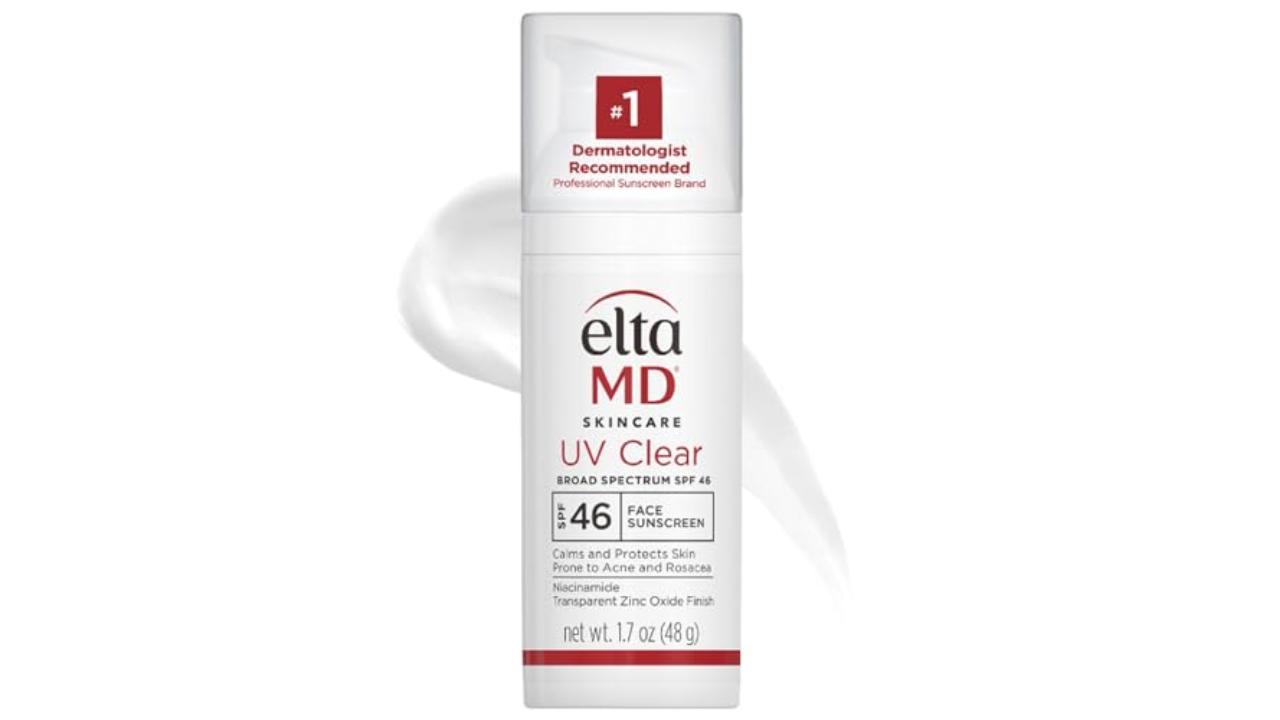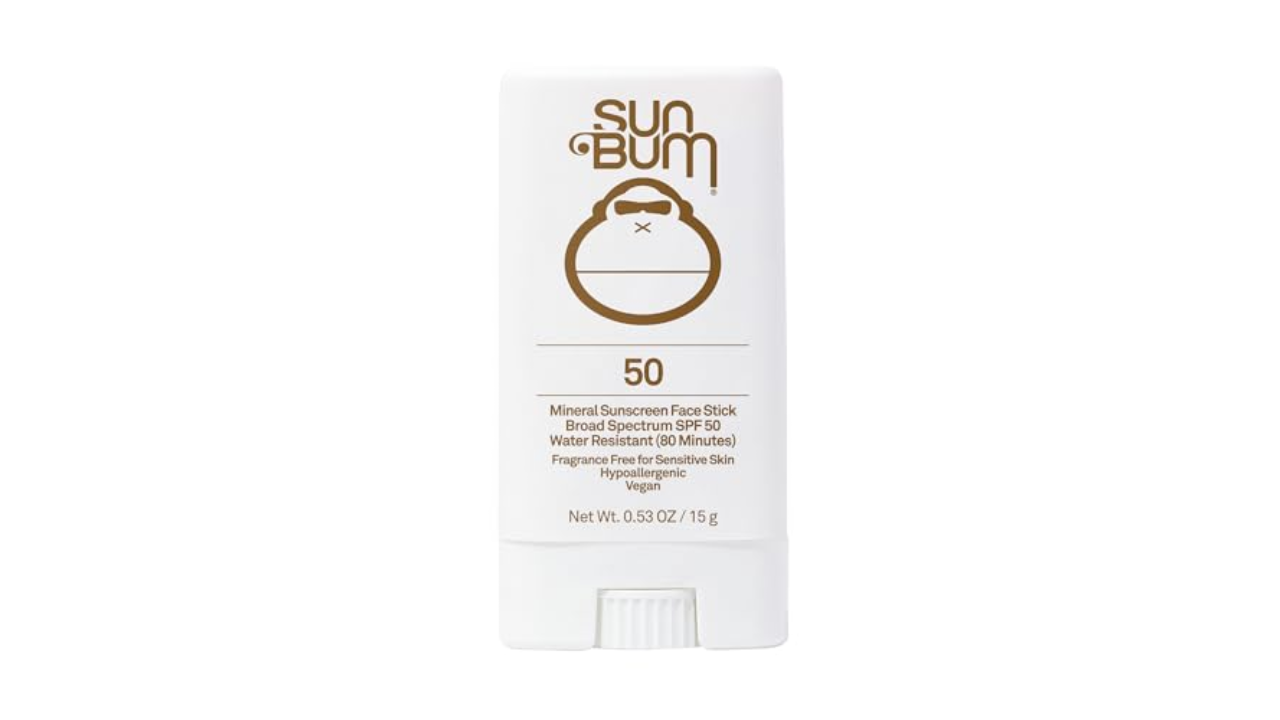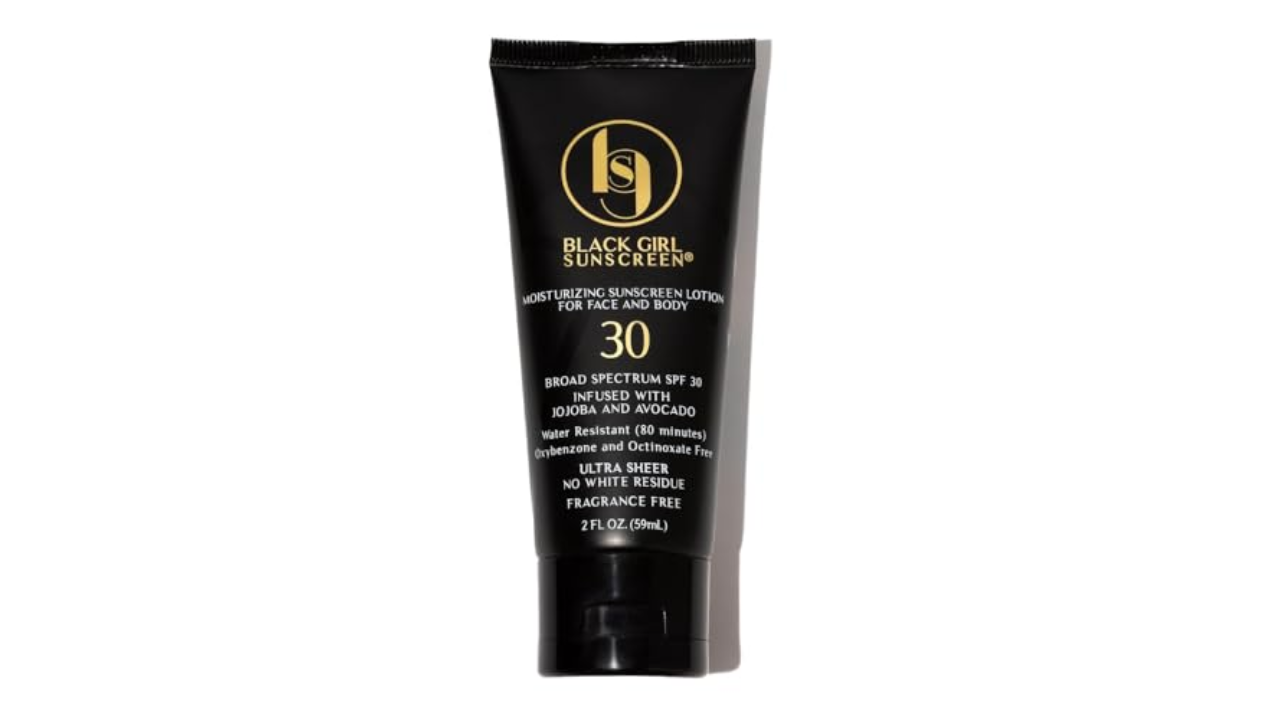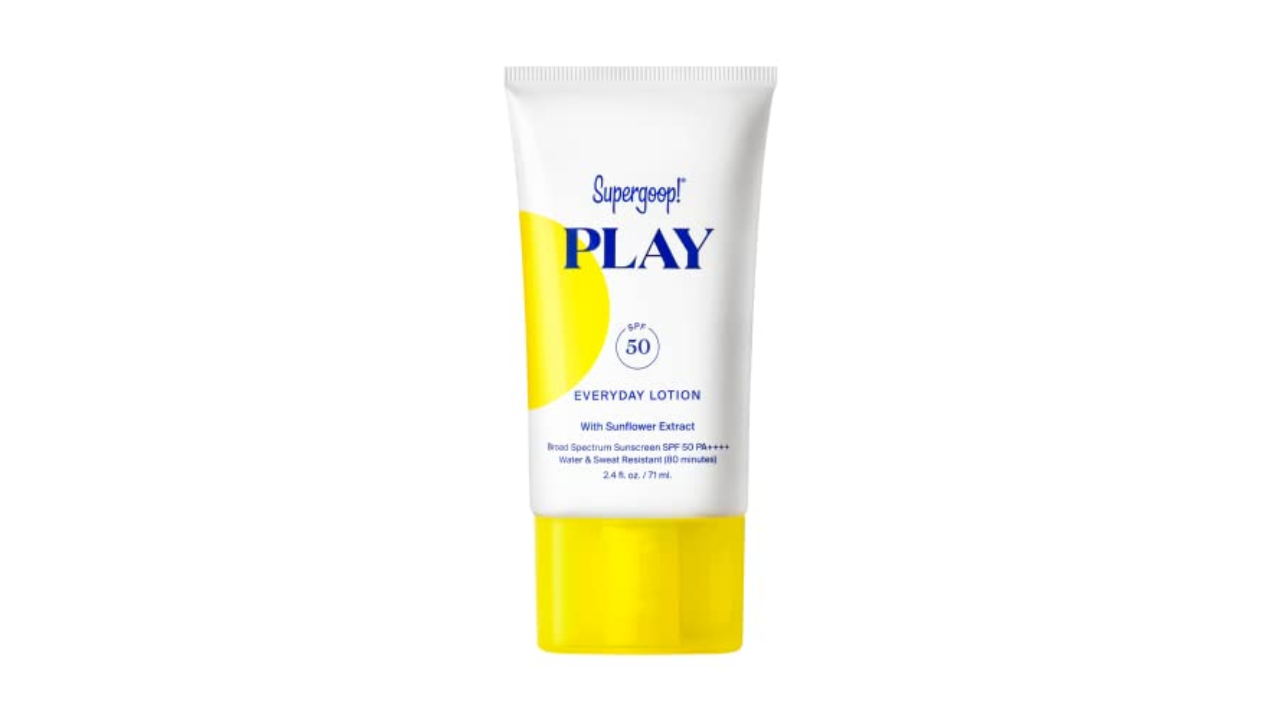We independently evaluate the products we review. When you buy via links on our site, we may receive compensation. Read more about how we vet products and deals.
You're applying your SPF all wrong — experts weigh in on how to do it right
The how, when and how much of applying sunscreen for the best possible protection
If you're anything like me, you probably have a bit of a love-hate relationship with sunscreen. I love that it helps protect against skin cancer and protects against the signs of aging, but it's such a chore to apply. Even worse, so many make me look like I'm wearing a layer of pale gray paint. I know that sunscreen is essential, but I sometimes wonder if I'm even doing it right. Like, am I applying it at the right time? In the right way? Using the right technique? And when I think I'm doing all the right things (like most of us believe), how do I really know? So, I called for help. I spoke to a few experts to get the facts on all things sunscreen, from how to use it to which ones they recommend to their patients.
Why is sunscreen important? ☀️
According to Johns Hopkins Medicine, sunscreen is one of the most effective and easiest ways to protect your skin's appearance and to keep it healthy. After all, it is our largest organ. When used regularly, "sunscreen helps prevent sunburn, skin cancer and premature aging," dermatologist and Johns Hopkins School of Medicine faculty member Dr. Anna Lien-Lun Chien says.
Now that we know why sunscreen is actually essential, we must learn the correct ways to apply it, or else we'll essentially be wasting the product (and our money), right? To get the full 4-1-1 on all things sunscreen, we also spoke with California-based dermatologist Dr. Anne Truitt and New York-based licensed esthetician Brittaney Trent.
Are all sunscreens the same? 🌞
First, there's one thing we need to address. When we think of sunscreen, most of our minds automatically go to the pasty white lotion-like liquid that takes forever to blend into our skin (if they do at all), but that's not the case for all sunscreens. Trent tells us that there are two main types: mineral and chemical.
"Mineral sunscreens are the ones that usually cause that ghostly glow, especially on darker skin tones," she says. "Chemical sunscreens are less likely to cause a white cast."
Besides how they show up on the skin, what's really the deeper difference between the two? Trent adds that chemical sunscreens actually "penetrate your skin and offer protection by dispelling absorbed UV rays." Mineral sunscreens, on the other hand, just "sit on top of your skin to repel UV rays."
If you've ever scrolled through skincare TikTok, you already know that everyone has their preferences on which is better, but, according to Trent, it all boils down to personal preference. What's most important is that you actually use one. "I won't tell you to choose one over the other as I like both," Trent says. "It ultimately comes down to what you prefer."
Should you apply sunscreen before or after other skincare products? 🤔
Sunscreen should be the last step in any skincare routine. It's important to always apply your sunscreen last so it has a chance to actually work and protect your skin from harmful sun exposure.
Truitt says that a simple four-step skincare routine is all you need, consisting of a cleanser, exfoliant, moisturizer and ending with your sunscreen. Before applying sunscreen, however, she recommends waiting just a few minutes so the moisturizer has time to absorb into your skin and the sunscreen can lie on top and work on its own.
Lien-Lun Chien says that, above all, what's most important is that you actually wear it and apply enough to protect your skin. If you plan on wearing makeup, she adds that some people find it easiest to apply sunscreen to bare skin before applying any makeup. "If you have concerns about layering specific products, speak with your dermatologist," she says.
Is there a correct way to apply sunscreen? ✅
Now that we know it should be applied last in your skincare routine (no matter what), here's exactly how it should be applied and how much you need. The rules vary depending on the expert, but they all agree that you should just ensure that you're applying enough to cover your entire face and/or body.
There's also the two-finger rule that's grown in popularity over the years because of social media skincare-guru advice videos. Trent says, though, that this method isn't as accurate as it sounds since "people have different finger and face sizes." Because of this, she says folks can end up under or over-applying.
"My rule of thumb is to make sure you apply enough sunscreen to cover your entire face," she says. "You can start with dots of SPF on your forehead, cheeks and chin to make sure you're covering each area."
Lien-Lun Chien says that about half a teaspoon of sunscreen tends to be just enough for most and it should be applied to your entire face, neck and ears.
And, you don't need any fancy devices or tools to work the product in. Truitt says your hands are just fine. She actually gave a pro-tip that's super easy to follow: Rub the sunscreen in as you would any face moisturizer or body lotion to ensure that you're properly covered. She also shared another method she uses when applying sunscreen to her own face and body. "I usually drop small amounts along the skin to make it easier to apply evenly," she says.
If you're not a fan of cream and standard liquid sunscreens, and prefer the convenience of a spray option, that's perfectly fine, but there's one expert-approved rule you should follow: "If using a spray [sunscreen], make sure to spray and rub to ensure all exposed skin is protected," she explains.
She adds that it's important to ensure that your sunscreen is "properly runner into the skin" and wait about "15-20 minutes" before going outside, so it has enough time to absorb into your skin.
Reapplication is key! 🔑
Just using it once isn't enough, though. The secret to sunscreen actually working is — let's say it together — reapplication! Unfortunately, we don't get brownie points for just applying it once. Since its effects do wear off after a few hours, it's important to reapply the product to reap its full benefits. How often should you reapply? Lien-Lun Chien suggests doing so "every two hours, especially after swimming or sweating."
Truitt adds that it's also important to reapply body sunscreen. If you're sweating or participating in any water sports, she says to apply more sunscreen to your body "every two hours or every 40-50 minutes."
If you're swimming or sweating a lot, each expert recommends reapplying even if two hours haven't passed, since the product may have been diluted or washed off your skin from the water or sweat. Trent adds that, if you can't remember the different times, the safest bet is to just "apply every two hours."
What sunscreens do experts recommend? 👩🏽⚕️
Now, it's time for the good stuff! What sunscreens do the experts use or recommend to their patients and clients? When looking for the best sunscreens, Truitt says to look for zinc — "Zinc, zinc and zinc!" as she enthusiastically puts it. So, what purpose does zinc serve in a sunscreen? Well, mineral sunscreens contain zinc oxide and many dermatologists recommend this ingredient since it doesn't absorb into the skin, making it often better for those with sensitive skin.
"Physical protection of zinc oxide gives the best broad-spectrum coverage," Truitt says. "It is also good for patients with sensitive skin or eczema (atopic dermatitis)."
If you've ever been to a dermatologist or esthetician, you already know that this is one of their all-time faves. This one contains zinc and isn't heavy like some you've probably used when you were younger.
This sunscreen has a lightweight texture and dermatologists say it's suitable for those who suffer from redness and inflammation due to acne and rosacea.
Truitt also says it's one of her top three favorite sunscreens.
Looking for a sunscreen hack that doesn't get your hands all greasy? Try a sunscreen stick. This one's dermatologist-approved (don't worry — we've checked with Truitt) and it's even safe to use on children. Truitt even says her kids like to use this sunscreen on their face.
One of the problems lots of people face with sunscreens — especially mineral ones — is that they tend to burn their eyes, especially when they sweat. Tons of Amazon shoppers say that this one doesn't irritate them.
"This is the only one I've found that does not bother mine or my kids' eyes," one five-star fan wrote. "Works great, just as good as any other brand for sun protection and doesn't leave our eyes hurting if we sweat or the kids rub their hands in their eyes!"
Many people with deeper complexions also find it more difficult than most to find a sunscreen that doesn't leave them looking like Casper the Ghost — and I'm speaking from personal experience — it's a struggle, folks. But there is one popular option that Trent uses and recommends to all of her clients with darker skin tones — Black Girl Sunscreen.
Trent, a licensed esthetician with a deeper complexion, speaks highly of this sunscreen: "This will forever be my go-to," she says.
"This sunscreen was the first to [be formulated] with dark skin tones top of mind and set the 'no white cast' trend," she adds.
In addition to being fragrance-free, this thoughtfully formulated sunscreen contains what Trent describes as "skin-loving ingredients" like avocado that helps soothe and moisturize the skin. Also, you get double-duty with this one since it's safe to use on both the face and body.
For some, the greatest challenge with sunscreen is finding one that doesn't burn their eyes when they're sweating or playing water sports. Trent says this is one of her top recommendations for those experiencing this issue.
"This sunscreen is perfect for everyday use because it's water and sweat-resistant," she says. "Plus, [it] doesn't leave a white cast (especially for deeper skin tones)... My go-to for summer."
She adds that it's also moisturizing, but is still lightweight and non-comedogenic (doesn't clog pores).
Interested in more dermatologist-recommend sunscreens? Check out this list of ones they use, themselves.
Do you need body sunscreen if you don't work outdoors? 🧴
There are tons of misconceptions about sunscreen out there (more on that later), but one of the most popular is that you don't need to apply any (especially body sunscreen) if you work indoors, like in an office, for example. Truitt says there are so many factors that come into play before you even get to your place of work that requires you to slap that sunscreen on.
"On work days, I always apply sunscreen in the morning to my face, ears, neck, arms and hands," she says. Especially if you're commuting to work or just stepping outside to grab a package, she adds that you at least need to apply sunscreen to your face to protect your skin from the sun's rays.
"Just driving in your car, getting your mail, and doing errands ... the sun exposure adds up," she says. If you work from home or are completely covered with clothes while commuting, you don't need to use body sunscreen — and this is coming from a pro. "At work, I am covered by clothing and indoors, so I don't apply on my body," she adds.
What are the biggest misconceptions about sunscreen? 🫤
Given that the topic of sunscreen is already pretty controversial as it is, we expect experts to have lots to say when sharing the most common misconceptions about this product type, but there are four, in particular, that Truitt feels most passionate about:
You only need to apply a small amount: Truitt says this is completely false, especially considering that "you need a shot glass worth for the whole body", depending on how tall you are.
SPF 15 is enough: If you've ever shopped for sunscreens at a drugstore or department store like Target or Walmart, you may have noticed that SPF 15 is the most common strength on the shelves. Truitt says that the original studies about sunscreens "were done with only SPF 15," but there's one caveat — "It was an incredibly thick application, which no one would actually do." Instead, she suggests using sunscreen with at least an SPF of 30.
I don't need sunscreen — I rarely go in the sun: Well, it's not that simple. Sun exposure is cumulative "throughout the day," she points out. She recommends thinking of applying sunscreen every morning like you do brushing your teeth — "Don't even think about it, just do it!" she says.
Sunscreen causes skin cancer: While that definitely sounds ridiculous when you read it out loud, many people do believe this. Clearing this myth up, Truitt says that UV radiation is what causes skin cancer "whether from the sun or a tanning booth" — not sunscreen.

 Yahoo Lifestyle
Yahoo Lifestyle 




